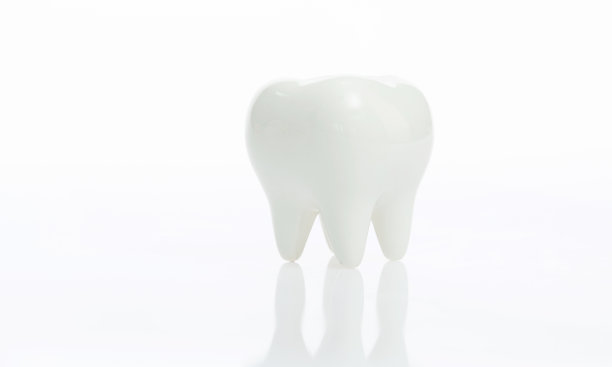Summary: Periodontal disease, often overlooked, poses significant risks to both oral and overall health in adults and children. This article delves into the causes and stages of periodontal disease, emphasizing its consequences on individual wellbeing. We explore how such diseases lead to severe complications if left untreated and illustrate their psychological and social impacts. Finally, we highlight preventive measures and the importance of a proactive approach towards maintaining oral hygiene. Understanding periodontal disease is crucial for promoting better oral health and enhancing quality of life for all age groups, indicating that dental care is a shared responsibility.
1. Causes and Stages of Periodontal Disease

Periodontal disease typically originates from the accumulation of plaque—a sticky film of bacteria on teeth. Poor oral hygiene leads to the mineralization of plaque, creating tartar that irritates the gum tissues. Over time, this irritation can progress to gingivitis, the early stage of periodontal disease, characterized by swollen and bleeding gums.
If gingivitis remains untreated, it can progress to periodontitis, where the inflammation extends deeper into the supporting structures of the teeth. At this stage, the periodontal ligaments and bone begin to deteriorate, leading to tooth mobility and, eventually, tooth loss. Understanding these stages is crucial for implementing timely interventions to stop the disease from advancing.
Various factors contribute to the development of periodontal disease, including genetics, smoking, hormonal changes, and systemic diseases like diabetes. Awareness of these risk factors can empower individuals to take preventive measures against the disease.
2. Impact on Oral Health
The impact of periodontal disease on oral health can be profound. As the disease progresses, it can lead to significant tooth loss, affecting speech, chewing, and overall oral function. Missing teeth can create further complications, including shifts in adjacent teeth, which can lead to malocclusion and additional dental issues.
Moreover, periodontal disease is often accompanied by bad breath and an unpleasant taste in the mouth, which can affect social interactions and self-esteem. The extensive loss of bone and gum tissue not only creates aesthetic concerns but can also lead to complications for dental restorations and prosthetics in the future.
Regular dental check-ups and professional cleanings can significantly decrease the likelihood of periodontal disease progression, highlighting the need for proactive oral health care. Children, too, are prone to periodontal issues despite common misconceptions, making early education on oral hygiene essential.
3. Overall Wellbeing and Psychological Impacts
Periodontal disease extends its effects beyond oral health, influencing overall wellbeing. Research suggests a notable link between periodontal health and systemic conditions such as cardiovascular diseases, diabetes, and respiratory issues. The inflammatory nature of periodontal disease may exacerbate these conditions, thereby increasing morbidity.
Furthermore, the psychological impact cannot be understated. Individuals suffering from periodontal disease may experience anxiety and depression related to their dental aesthetics and the accompanying pain. This can further discourage them from seeking necessary dental care, creating a detrimental cycle.
Socially, the ramifications of periodontal disease can lead to isolation or embarrassment. Concerns about personal hygiene and the fear of negative judgment from peers can lead to withdrawal from social situations, diminishing one’s quality of life. Thus, understanding and addressing the comprehensive effects of periodontal disease is vital for fostering better mental and emotional health.
4. Prevention and Education
Preventing periodontal disease involves a multifaceted approach, focusing primarily on good oral hygiene practices. Routine brushing at least twice a day, along with daily flossing, plays a crucial role in plaque control. Additionally, using antimicrobial mouthwash can further reduce bacteria in the mouth, contributing to healthier gums.
Education on the importance of regular dental visits is paramount. Dental professionals can offer personalized advice, early detection of gum disease, and professional cleanings that remove tartar and prevent infection. For children, establishing healthy oral hygiene habits early lays a foundation for a lifetime of oral health.
Furthermore, dietary choices can significantly affect periodontal health. A diet rich in vitamins, particularly Vitamin C, can support gum health, while reducing sugar intake helps minimize plaque buildup. Encouraging healthy eating habits is a simple yet effective preventive measure against periodontal disease.
Summary: Understanding periodontal disease is essential for safeguarding oral health and overall wellness. The disease has serious implications that can affect both adults and children, highlighting the necessity for education, early intervention, and proper hygiene practices. As we navigate the multifaceted impacts of periodontal disease, it becomes clear that proactive measures can curb its progression and enhance life quality.
This article is compiled by Vickong Dental and the content is for reference only.
Vickong Dental
Vickong Dental is a large medical group established in Hong Kong in 2008 by professors from well-known medical universities in Guangdong and Hong Kong, as well as medical doctors from key national '985' universities (including Master's supervisors and senior professors). The chain of branches brings together expert dentists with PhDs and Master's degrees from Hong Kong and Mainland China, committed to providing high-quality dental treatment.
"Vickong Dental Practices the University Motto of 'Healing and Serving Society,' with a Stable Operation for Sixteen Years. It Has Been honored with Hong Kong Enterprise Leaders's Choice,' and is a Global Trusted Implant Center for the Nobel Implant System. Recommended by Hong Kong Metro Broadcast and Guangdong Television, it Serves Customers from Over Thirty Countries and Regions, Gaining the Trust and Favor of Citizens from the Guangdong-Hong Kong-Macau Greater Bay Area and Surrounding Cities.

Thousands of customers' unanimous praise
The most recognized and highly recommended dental service by customers in the Guangdong-Hong Kong-Macau Greater Bay Area
We Ensure You Receive Detailed Care and Attention Here
Hong Kong standards, Shenzhen prices, Your Trusted English-speaking dentists

Vickong Dental Medical-Grade Instrument Disinfection Process
Vickong Dental Medical-Grade Instrument Disinfection Process

Vickong Dental Chain: A Warm and Comfortable Environment for Treatment






Appointment Hours

Q&A
Why choose Vickong Dental?
Vickong Dental practices the university motto 「Medicine to Benefit Society」, with each branch bringing together highly qualified dentists with doctoral and master’s degrees from Hong Kong and the Mainland, and has maintained seventeen years of steady operation。Recipient of 「2024 Hong Kong Enterprise Leaders Brand」, 「2025 Hong Kong Enterprise Leaders Brand」, a Nobel Biocare Global Trusted Implant Center, and a brand recommended by Metro Radio Hong Kong and Guangdong TV。
To date, we have served customers from more than thirty countries and regions,earning exceptionally high word-of-mouth recognition and trusted recommendations from residents across the Guangdong-Hong Kong-Macao Greater Bay Area and surrounding cities
We have eight major branches in Zhuhai、Shenzhen,and a consultation and service assurance center in Hong Kong,so you can book a free consultation at any time for any questions,which is very reassuring.
If I do not accept the quotation after the CT scan, will I be charged??
No! As long as the actual treatment has not started, you will not be charged any fees.
Will there be any additional charges during the treatment process?
No, there won’t be any additional charges. Before treatment begins, we will clearly explain the treatment plan and its corresponding fees. Only after the patient agrees and signs the consent form will we proceed with the dental service.
Can I pay in Hong Kong dollars?
Yes. Vickong Dental accepts payment in Hong Kong dollars. The amount will be converted based on the exchange rate of the day, and the applicable rate will be clearly communicated to you in advance.
Can I reschedule my appointment at any time?
Yes. Please contact us via **WeChat** or **WhatsApp** as early as possible, providing your original appointment time and details, along with your preferred new date and time slot for rescheduling.













